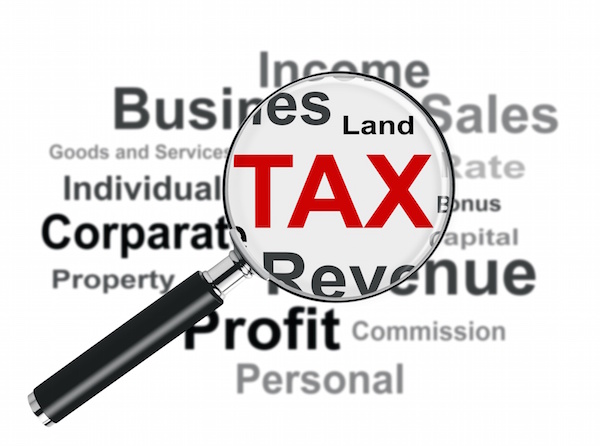Just like people, businesses are taxed based on their income. However, the kind of taxes that are owed by a business and the way in which they file their taxes depends on the type of business structure they are considered. Knowing what kind of business structure your company is will help you to understand how much tax you will owe and what forms will need to be filed in order to satisfy these tax obligations. There are five main types of business taxes that a company may be obligated to pay. These are income taxes, estimated taxes, self-employment taxes, employment taxes, and excise taxes. This post will be focusing on income taxes.
Income Taxes
The main tax that people are most familiar with are income taxes. These are the taxes that are regularly taken out of the monthly paychecks of employees. But did you know that businesses have to pay income taxes too? In fact, all businesses, with the exception of partnerships, must file income tax returns. Partnerships, on the other hand, are required to file information returns. Federal income taxes are considered pay-as-you-go, which means that the company must pay taxes as they earn or receive income throughout the year.
Given that different types of businesses are required to pay federal income taxes differently, it’s important to know what kind of business you have. The most common types of business structures include sole proprietorship, partnership, corporation, and S-corporation.
Sole Proprietorship
If a business owner owns an unincorporated business by himself or herself, that company can be considered a sole proprietorship. However, it’s important to note that if the company elects to be treated as a limited liability company or as a corporation, they cannot also be a sole proprietor.
Partnership
A partnership is when two or more people form a relationship and join together to form a business. Each of these partners contributes money, property, labor, or skill and is expected to share in both the profits and losses of the business. If the business is officially a partnership, they will be expected to file an annual information return which will inform the government on their income, deductions, gains, losses, and other financial aspects of their business. Partnerships don’t pay income taxes, but instead each partner will include their share of the income or losses of the partnership on their individual tax return.
Corporation
A corporation, sometimes referred to as a C corporation, is made up of shareholders who exchange money, property, or both for the corporation’s capital stock, the stock a company is authorized by the corporate charter to use. To find out how much of their income is taxable, corporations can usually take the same deductions as a sole proprietorship, but they can also take some special deductions. A corporation will typically take the net income or losses from their day-to-day business to pay taxes and distribute any profits to their shareholders.
In certain circumstances, corporations have the ability to be taxed twice, known as double taxed. The corporation is taxed the first time when the money is initially earned. When the dividends are then distributed to the shareholders, they are taxed again. Adding to this is the fact that the corporation will not receive any tax deductions when the dividends are distributed to the shareholders and these shareholders are not allowed to deduct any losses of the corporation.
S Corporation
S corporations are corporations that have decided to pass on their corporate income, losses, deductions, and credits to their shareholders for federal tax purposes. These shareholders then report the flow-through of income and loss on their personal tax returns, meaning that they will be taxed at their individual income tax rate. This process allows the S corporations to avoid the double taxation that can be levied on the C corporations. However, there are some stipulations that must be met in order to be considered a S corporation; it must be a domestic corporation, must have only allowable shareholders, must have no more than 100 shareholders, must have only one class of stock, and must not be an ineligible corporation.
The way that your business is taxed is largely dependent on the type of business that you possess. Understanding how your business structure is classified will help you know what taxes you are liable for and what forms you must submit. To better understand your business’ income tax situation, come to France Law Firm for help.






















